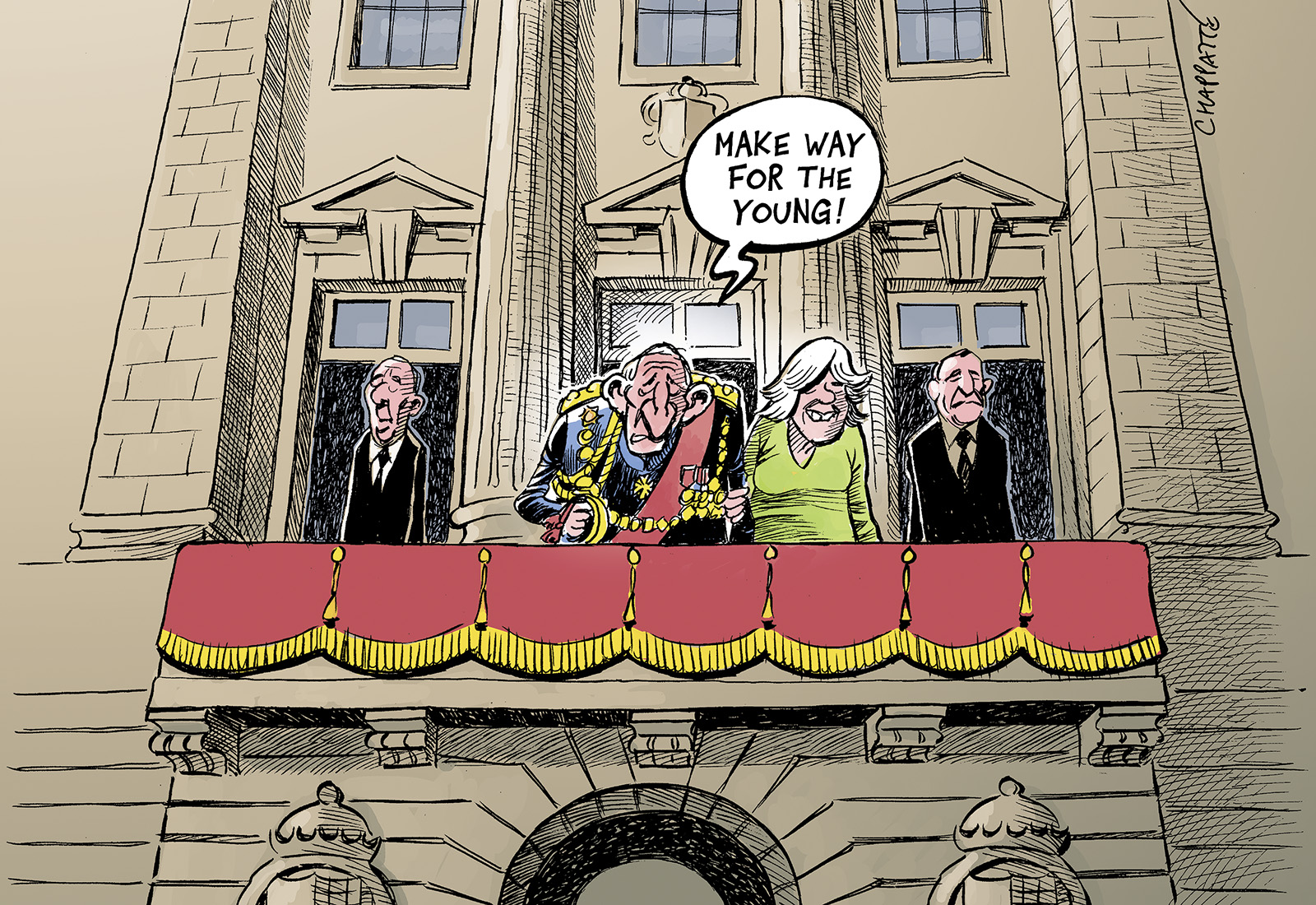Charles: The Man Behind The Legacy You Need To Know About
Ever wondered why Charles is such a timeless name? It’s not just about the charm or the history—it’s about the stories, the impact, and the people who’ve carried the name through generations. From kings to revolutionaries, Charles has been a name that echoes through time, leaving behind a legacy that’s hard to ignore. So, buckle up, because we’re diving deep into the world of Charles and uncovering the secrets behind this iconic name.
Now, let’s face it, names have power. They carry history, culture, and sometimes even destiny. Charles isn’t just any name—it’s a name that’s been worn by some of the most influential figures in history. From Charles Dickens to Charles Darwin, the name has been synonymous with greatness, innovation, and change. And trust me, there’s a lot more to it than meets the eye.
In this article, we’re going to explore everything you need to know about Charles—the name, the people, and the legacy. Whether you’re a history buff, a curious reader, or someone who’s just fascinated by the power of names, this is the place to be. So, grab your favorite drink, sit back, and let’s get started!
Read also:Alejandro Vega The Rising Star Whos Taking The World By Storm
Who is Charles? A Brief Biography
The Origins of the Name Charles
Let’s start at the beginning, shall we? The name Charles has its roots in Old German, where it means “free man” or “strong.” Pretty cool, right? But here’s the kicker—it’s not just the meaning that makes it special. The name has been around for centuries, and it’s been embraced by cultures all over the world. Whether you’re talking about Charles the Great (a.k.a. Charlemagne) or Charles de Gaulle, the name has always carried a sense of strength and authority.
And let’s not forget the cultural significance. In many societies, Charles has been seen as a name of power and leadership. It’s no wonder why so many kings, emperors, and leaders have chosen this name for themselves or their children. But it’s not just about royalty—Charles has also been a name associated with creativity, innovation, and intellectual prowess. Think about Charles Dickens, Charles Schulz, and Charles Barkley. These guys weren’t just leaders—they were game-changers.
Charles in Modern Times
Fast forward to today, and Charles is still going strong. While it might not be as popular as it once was, it’s definitely not going anywhere anytime soon. In fact, according to recent data from the Social Security Administration, Charles ranks in the top 100 names for baby boys in the United States. That’s pretty impressive, considering how many new names have popped up over the years.
But what makes Charles so timeless? Well, for starters, it’s a name that’s both classic and versatile. It can work in almost any setting, whether you’re talking about a business meeting or a casual hangout with friends. Plus, it’s got that certain je ne sais quoi that makes it stand out. You know, like when you hear the name and instantly think, “Yeah, that’s someone worth knowing.”
The Life and Times of Famous Charleses
Charles Dickens: The Literary Giant
When you think of Charles Dickens, you probably think of novels like “A Tale of Two Cities” or “Great Expectations.” And for good reason—this guy was a literary powerhouse. Born in 1812 in England, Dickens was the son of a naval clerk who struggled with debt. But despite his humble beginnings, he went on to become one of the most celebrated authors of all time.
His works often tackled social issues, such as poverty, inequality, and injustice. Through characters like Oliver Twist and Ebenezer Scrooge, Dickens brought these issues to life in a way that resonated with readers all over the world. And let’s not forget his incredible storytelling skills. Dickens had a way of weaving complex plots and memorable characters that kept readers hooked from beginning to end.
Read also:Alex Goes A Rising Star In The Entertainment World
Charles Darwin: The Father of Evolution
Now, let’s talk about Charles Darwin—the man who changed the way we think about life itself. Born in 1809 in England, Darwin was a naturalist and geologist who spent much of his life studying the natural world. His most famous work, “On the Origin of Species,” introduced the theory of evolution by natural selection, which revolutionized the field of biology.
But here’s the thing—Darwin didn’t just come up with this theory overnight. It took years of observation, research, and experimentation to piece everything together. And even then, he faced a lot of resistance from people who weren’t ready to accept his ideas. But Darwin stood by his work, and today, his contributions to science are celebrated all over the world.
Biographical Data of Famous Charleses
| Name | Born | Died | Profession | Notable Achievements |
|---|---|---|---|---|
| Charles Dickens | 1812 | 1870 | Author | Wrote classics like "A Tale of Two Cities" and "Great Expectations" |
| Charles Darwin | 1809 | 1882 | Naturalist | Developed the theory of evolution by natural selection |
| Charles de Gaulle | 1890 | 1970 | Statesman | Leader of Free France during WWII |
| Charles Schulz | 1922 | 2000 | Cartoonist | Creator of the Peanuts comic strip |
The Cultural Impact of Charles
Charles in Literature
Let’s talk about the literary side of things for a moment. Charles has been a popular name in literature for centuries, and for good reason. Whether you’re talking about Charles Bovary in “Madame Bovary” or Charles Ingalls in “Little House on the Prairie,” the name has a way of evoking a certain sense of familiarity and warmth. It’s like when you hear the name, you instantly picture a character who’s relatable, yet complex.
And let’s not forget the symbolism. In many works of literature, Charles is often portrayed as a character who’s searching for meaning or trying to find his place in the world. It’s a theme that resonates with readers on a deep level, and it’s one of the reasons why the name has remained so popular in literature over the years.
Charles in Film and Television
Now, let’s shift gears and talk about Charles in the world of film and television. From Charles Foster Kane in “Citizen Kane” to Charles Xavier in the “X-Men” franchise, the name has been used to create some of the most iconic characters in entertainment history. And let’s be honest—these characters are unforgettable.
But what makes Charles such a great name for characters? Well, for starters, it’s versatile. It can work in almost any genre, whether you’re talking about drama, comedy, or action. Plus, it’s got that certain gravitas that makes it perfect for characters who are meant to be taken seriously. You know, like when you hear the name and instantly think, “This guy’s got something to say.”
The Psychology Behind the Name Charles
What Does Charles Say About You?
Let’s talk about the psychology of names for a moment. Believe it or not, the name Charles can actually say a lot about a person’s personality and character. People with this name are often seen as strong, dependable, and trustworthy. They’re the kind of people you want on your team when the going gets tough.
But here’s the thing—Charles isn’t just about strength and dependability. It’s also about creativity and intellectual curiosity. People with this name tend to be thinkers and problem-solvers, always looking for new ways to approach challenges and find solutions. And let’s not forget the charm factor. Charles is a name that just seems to exude charisma and confidence.
The Name Charles in Different Cultures
Now, let’s take a look at how the name Charles is perceived in different cultures. In Western cultures, Charles is often associated with leadership and authority. It’s a name that’s been embraced by royalty, politicians, and business leaders alike. But in other cultures, Charles can have different connotations. For example, in some African cultures, Charles is seen as a name of wisdom and knowledge.
And let’s not forget the linguistic differences. In French, Charles is pronounced “shar-le,” while in Spanish, it’s pronounced “kar-les.” These subtle differences can actually affect how the name is perceived in different parts of the world. But no matter where you go, Charles is a name that commands respect and admiration.
Charles in the Modern World
Charles and Technology
Now, let’s talk about Charles in the modern world. With the rise of technology and social media, names like Charles have taken on new meanings and significance. For example, there’s Charles Schwab, the financial services company, and Charles River, the tech company. These companies have embraced the name Charles as a symbol of innovation and progress.
And let’s not forget the impact of social media. Platforms like Instagram and Twitter have given people with the name Charles a chance to share their stories and connect with others who share their name. It’s created a sense of community and belonging that wasn’t possible before.
Charles and Pop Culture
Finally, let’s talk about Charles in pop culture. From Charles Barkley to Charles Manson, the name has been associated with some of the most fascinating and controversial figures in recent history. And while these associations might not always be positive, they’ve certainly added to the name’s mystique and allure.
But here’s the thing—Charles isn’t just about the famous or the infamous. It’s about the everyday people who wear the name with pride and make their mark on the world in their own unique ways. Whether you’re a Charles yourself or just someone who appreciates a good name, there’s no denying the impact that this name has had on our culture and our history.
Conclusion: Why Charles Matters
So, there you have it—the story of Charles in all its glory. From its origins in Old German to its place in modern culture, this name has truly stood the test of time. Whether you’re talking about Charles Dickens, Charles Darwin, or Charles Barkley, the name has been associated with greatness, innovation, and change.
But here’s the most important thing to remember—Charles isn’t just a name. It’s a legacy. And whether you’re a parent considering the name for your child or just someone who appreciates the power of names, there’s no denying the impact that Charles has had on our world. So, the next time you hear the name, take a moment to appreciate its history, its meaning, and its significance. Trust me, it’s worth it.
And now, it’s your turn. What do you think about the name Charles? Do you know someone with this name? Leave a comment below and let’s keep the conversation going. And while you’re at it, why not share this article with your friends and family? You never know who might appreciate learning more about this iconic name.

